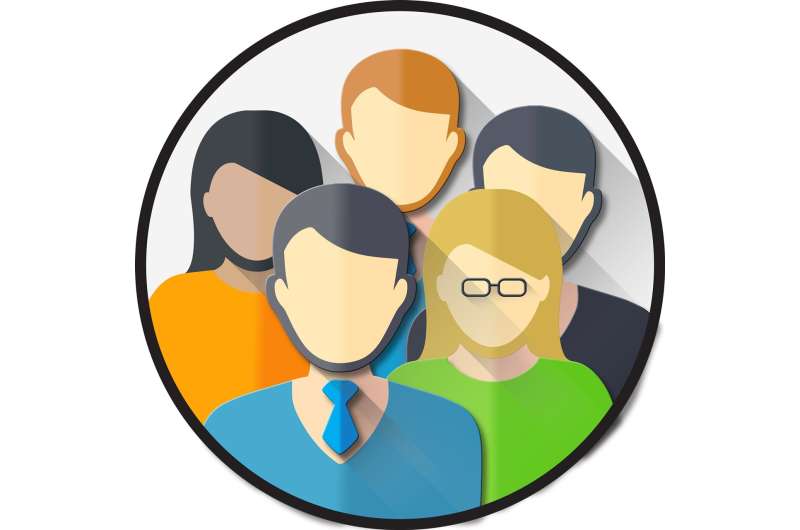
How do online crowds form, grow and behave? How do they wield influence? What distinguishes desirable crowd activism from mob harassment?
In the summer of 2022, Cornell Tech and Cornell Law School professor James Grimmelmann and postdoctoral fellow Charles Duan hosted a virtual workshop in which participants attempted to answer these questions and more.
At the end of the two-day online workshop, Grimmelmann, the Tessler Family Professor of Digital and Information Law at Cornell Tech and at Cornell Law School, and co-organizer Duan, now an assistant professor of law at American University's Washington College of Law, asked participants to reflect on the conversations and identify important themes about platforms and crowds.
The result, titled "The Barons and the Mob: Essays on Centralized Platforms and Decentralized Crowds," serves as an introduction to the complexities of online crowds and the importance of understanding their nature in the context of efforts toward online platform regulation.
The introduction references a pair of online user "revolts." In 2007, one of the users of news aggregator Digg posted an encryption key that could be used to circumvent copyright protection on Blu-Ray discs. Sixteen years later, Grimmelmann and Duan wrote, "history rhymed with itself" when Reddit, in preparation for a rumored IPO, started charging developers to access its previously free application programming interface. Users of both platforms rose up in revolt. In Digg's case, the crowd won the revolt, but not so with Reddit.
"The Digg disruption and the Reddit rebellion," they wrote, "demonstrate the conflict between the two great sources of power on the Internet: the centralized platforms that control the infrastructure of online communities, and the decentralized crowds of users who come together in them."
In all, a dozen experts share their perspectives in "The Barons and the Mob," tackling what makes an online crowd; the influence of money on crowds; identifying misinformation; authenticity; network economics and other topics.
Grimmelmann spoke with the Chronicle about the essay collection.
What was the impetus behind the workshop?
The idea came out of seeing some of the ways that crowds were self-consciously being weaponized for political and commercial purposes. The "to the moon" sentiment of the wallstreetbets subreddit wasn't all that different from the kind of online energy associated with political movements or with influencer beefs. But platforms seemed to consider some of these crowds to be serious problems they had to block, and some of them to be benign intended uses. That paradox led us to look more closely at how platforms and crowds related to each other.
Are there other moments in history that radically changed the dynamic between the 'barons' and the 'mob'—perhaps the invention of the printing press?
The printing press definitely helped catalyze new kinds of distributed groups, from scientific collaborations to journalism for "the public." The age of revolution—starting especially with the French Revolution—demonstrated the dramatic power of the mob on the street compared with old aristocratic hierarchies. The mobs prevailed in the long run: Old forms of centralized power were swept aside and gave way to new political forms that were more responsive to mass public sentiment.
Has the power dynamic between platforms and crowds morphed over time? Have crowds learned how to wield greater power over the last 20 to 30 years?
The Reddit moderator revolt last summer was a really striking moment, because Reddit explicitly decided that it was willing to take on the full power of a highly organized user group. It was a big bet, and Reddit basically won: Its IPO went ahead, and today the site has much more effective power over its user base. The pendulum seems to have swung in the direction of the platforms; they're better able to predict and steer crowd dynamics than they were a few years ago.
You can see TikTok as an extreme example of this trend: The site harnesses crowd energy and enthusiasm but systematically works to prevent crowds from forming and sustaining themselves in ways that would form durable power alternatives.
Do you see an ultimate 'winner' in this push-and-pull between the 'lords' (platforms) and the 'commoners' (users)? Can there ever be a winner?
No—the tension is eternal. Without either of these forms, social media wouldn't function. Platforms need crowds in order to be viable businesses, and crowds need platforms as a place to gather. They each have an interest in the other's existence.
Are there other big questions to be addressed in this space?
Yes—we don't know how online crowds are catalyzed and controlled. We don't know how to think about them as groups with agency for economic purposes. We don't know what legitimate and effective forms of moderation to respond to them look like. We don't know how regulations will go awry when crowds respond to them. And there are many more: This report is just a starting point, and a way of inviting people to think seriously about these issues.
Citation: Q&A: How online crowds wield power, for good and bad (2024, September 9) retrieved 9 September 2024 from https://techxplore.com/news/2024-09-qa-online-crowds-wield-power.html
This document is subject to copyright. Apart from any fair dealing for the purpose of private study or research, no part may be reproduced without the written permission. The content is provided for information purposes only.
